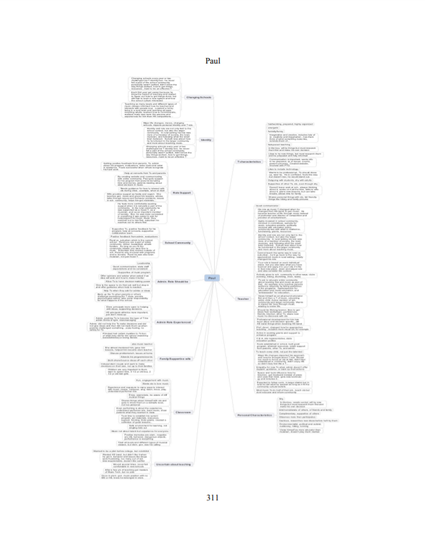
Dissertation
The Impact of Changing Teaching Jobs on Music Teacher Identity, Role, and Perceptions of Role Support
(2011)
Abstract
This study utilized symbolic interaction as a framework to examine the impact of mobility on four veteran elementary general music teachers’ identities, roles, and perceptions of role support. Previous research has focused on teacher identity formation among preservice and novice teachers; veteran teachers are less frequently represented in the literature. Teacher mobility research has focused on student achievement, teachers’ reasons for moving, and teacher attrition. The impact of mobility on veteran teachers’ identities, roles, and perceptions of role support has yet to be considered.
A multiple case design was employed for this study. The criteria for purposeful selection of the participants were elementary general music teachers who had taught for at least ten years, who had changed teaching contracts and taught in at least two different schools, and who were viewed as effective music educators by fine arts coordinators. Data were collected over a period of eight months through semi-structured interviews, email correspondence, observations, review of videotapes of the participants’ teaching in previous schools, and collection of artifacts. Data were analyzed within and across cases.
The cross-case analysis revealed themes within the categories of identity, role, and role support for the participants. The findings suggest that the participants perceived their music teacher roles as multi-dimensional. They claimed their core identities remained stable over time; however, shifts in teacher identity occurred throughout their years as teachers. The participants asserted that mobility at the start of their careers had a positive impact because they each were challenged to solidify their own teacher identities and music teacher roles in varied school contexts. Mobility negatively impacted role and teacher practices during times when the participants adjusted to new school climates and role expectations. Role support varied depending upon school context, and the participants discovered active involvement in the school community was an effective means of seeking and acquiring role support. Reflection experiences in music teacher preparation programs, as well as mentoring and professional development geared toward teacher identity formation and role maturation, may assist teachers in matching their desired school context with their teacher identities and perceptions of the music teacher role.
Disciplines
Publication Date
May, 2011
Degree
Doctor of Musical Arts
Field of study
Music Education
Department
Music
Advisors
Margaret Schmidt, Sandra Stauffer, Jeffrey Bush, Jill Sullivan, and Evan Tobias
Citation Information
Lori F. Gray. "The Impact of Changing Teaching Jobs on Music Teacher Identity, Role, and Perceptions of Role Support" (2011) Available at: http://works.bepress.com/lori-gray/14/
